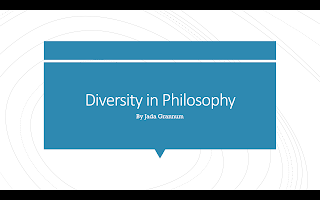“One of the things I love about Dewey’s thinking is the courage he gives us to seize our life and make it. This element of aliveness, the energetic vitality that comes with making, is grounded in experience, and is validated by Dewey.”
Mary Jane Jacob is Professor and Chair of Sculpture at the School of the Art Institute of Chicago (SAIC). She is the author of Dewey for Artists (2018) and the co-editor of Magdalena Abakanowicz: Every Tangle of Thread and Rope (2022) for her show at Tate Modern in London, as well as Chicago Makes Modern: How Creative Minds Changed Society (2012), Learning Mind: Experience Into Art (2009), and Buddha Mind in Contemporary Art (2004), among other books and exhibition catalogues. She was formerly chief curator at the Museums of Contemporary Art in both Los Angeles and Chicago, as well as Executive Director of Exhibitions and Exhibition Studies at SAIC. She has curated numerous exhibitions and artists’ site-specific and socially engaged projects.
What does American philosophy mean to you?
Dewey—whose understanding of human nature and the personal challenge each of us must seize to craft a life (which has everything to do with forging a democracy)—could not be more important right now. Democracy, which Dewey realized we must build iteratively with each generation, is lost on those who seek to be free from this invested task of making our democracy, who think freedom is found in what democracy does for them. Today, as I write, Kamala Harris picked Tim Walz as her vice-presidential running mate. In this moment, to embody Deweyan democracy we must consider not just what American philosophy can mean but also how it can be put into action.
How did you become an American philosopher?
How? In a most circuitous route. From 1999-2004, I undertook with Jacquelynn Baas an experiential research program called “Awake: Art, Buddhism, and the Dimensions of Consciousness.” I got into this project not because of any Eastern spiritual expertise, but because I’d curated some lived-practice art projects that, moving out of the museum, sought to test the possible relationships between artists, art, and audiences. One result was the book Buddha Mind in Contemporary Art (2004). At the end Jacquelynn said, “maybe we should have looked at Dewey’s Art As Experience.” Then I did just that—for the next ten years—both through theory (reading Dewey in every which way, lecturing, and writing) and through practice (curating social practice with artists and audiences).
How would you describe your current research?
This past summer I have been surveying the books, conference workbooks, foundation reports, exhibition catalogues, anthologies, and theoretical treatises that I have amassed over the past 25 years. They now seem to chart the dynamic and contentious terrain of what we call social practice art. The keywords that emerge from this movement are community, education, and democracy.
What do you do when you’re not doing American philosophy?
One of the things I love about Dewey’s thinking is the courage he gives us to seize our life and make it. This element of aliveness, the energetic vitality that comes with making, is grounded in experience, and is validated by Dewey.
Five years ago, my husband (an historian and museum director, Russell Lewis) died after a brief bout with cancer. Everyone who experiences loss (and Dewey had his share), knows that in small or big ways you have to remake your life. For me, I must cook, every day, handle the material ingredients that are more than sustenance, compose and present them, even if just for me, and then share these makings with others as often as I can. At heart and in practice, I am a curator.
What’s your favorite work in American philosophy? What should we all be reading?
The hardest question. I’ll say Peter Korn’s Why We Make Things and Why It Matters: The Education of a Craftsman. I’ll admit in part this is because this book is well designed; it feels good to hold. (When working on my Dewey book, I always tried to obtain early editions of his works; they were created in such a different way from now.) While Korn does not speak of Dewey, he follows a thread that starts with Dewey’s mechanic in Art As Experience, springs forward to Robert M. Pirsig’s brilliant Zen and the Art of Motorcycle Maintenance: A Inquiry into Values, and on to David A. Granger’s insightful John Dewey, Robert Pirsig, and the Art of Living. These books bring us back to what matters; they are centering. Making is a meditation.
https://american-philosophy.org/i-am-an-american-philosopher-mary-jane-jacob/














 Diversity in philosophy.pptx
Diversity in philosophy.pptx












